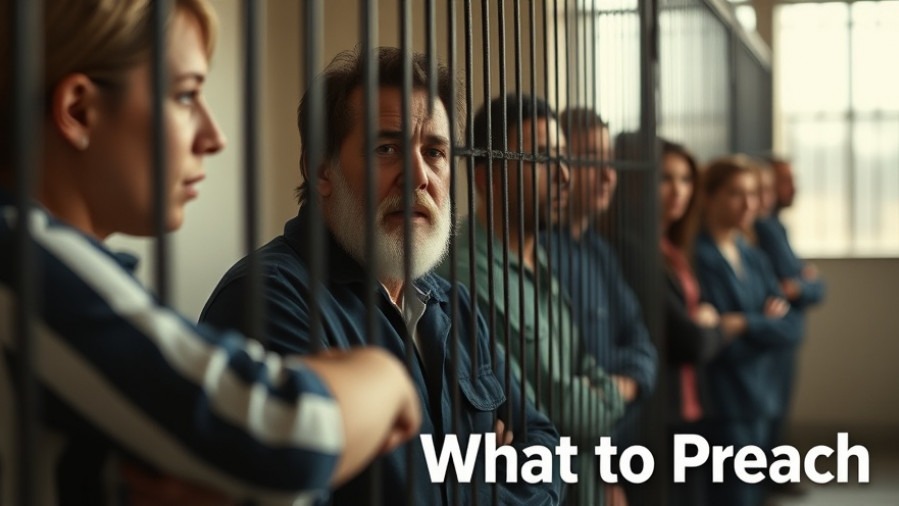
Deciding What to Preach: A Sacred Responsibility
Preaching in a prison context brings a profound sense of gravity. Recently, Pastor John faced that unique challenge when he had the opportunity to share the Gospel with a group of individuals imprisoned at Angola, Louisiana. His approach was to focus on how Jesus came not merely to fulfill worldly desires, but to be the 'bread of life' that satisfies deep spiritual hunger. This message is essential not just for those behind bars, but for everyone seeking meaning and purpose in life.
The Will of God: An Understanding That Guides
But how does one decide what to preach? Pastor John emphasizes understanding the will of God in his decision-making process. The 'sovereign will' is God's overarching plan and purpose, whereas the 'moral will' encompasses the commandments outlined in Scripture. Understanding these concepts is crucial for delivering messages that not only resonate with the immediate audience but also align with what God desires to communicate.
The Power of Identity: Preaching the Imago Dei
One crucial aspect often overlooked in prison ministry is the significance of preaching the doctrine of the Imago Dei—or the belief that everyone is made in the image of God. Many prisoners struggle with negative self-identification, often defining themselves solely by their past mistakes. Revealing their identity as creations of God who possess inherent worth can spark transformation. This redemptive message invites them to see themselves not as their crimes, but as capable of change and restoration.
Communicating the Whole Counsel of God
In sharing the Gospel with inmates, it's tempting to shy away from difficult truths to avoid further dehumanization. Pastoral care requires a balance of love and accountability. Preaching the whole counsel of God is essential, as it provides a fuller picture of the Gospel—one that includes grace, judgment, justice, and mercy. The church must remember that inmates need the complete story of Scripture, just like anyone else.
Why Context Matters in Preaching
Context matters immensely, particularly in diverse settings like prisons. For instance, someone with a long-standing church background may need reminders about the severity of sin, while others, like those incarcerated, may have a clearer understanding of their sinfulness. Adjusting the focus to fit the audience ensures that the message not only connects but also fosters change in individuals' lives.
The Role of Restorative Justice: A Community Perspective
Navigating the challenges of the prison system often reveals a need for restorative justice. This approach emphasizes healing rather than punishment. As communities of faith, it is imperative to advocate for reforms that support rehabilitation, helping offenders reintegrate positively into society. Understanding the broader implications of incarceration helps church members recognize their role in crafting a more just and humane criminal system.
Action Steps for Engaging in Prison Ministry
For those inspired to take action, consider how you can engage with your local prison ministry. Whether it is through writing letters, offering resources or simply praying, every action can plant seeds of hope and dignity. You can create change by getting involved in programs that encourage rehabilitation and support those impacted by incarceration.
Ultimately, the role of preaching in prison goes beyond mere words; it's about sparking hope and change. We have a collective opportunity to be instruments of grace, advocating paths of healing. So let us reflect on our messages and who they serve, aiming to bring eternal hope to individuals in their hour of need.
 Add Row
Add Row  Add
Add 








Write A Comment